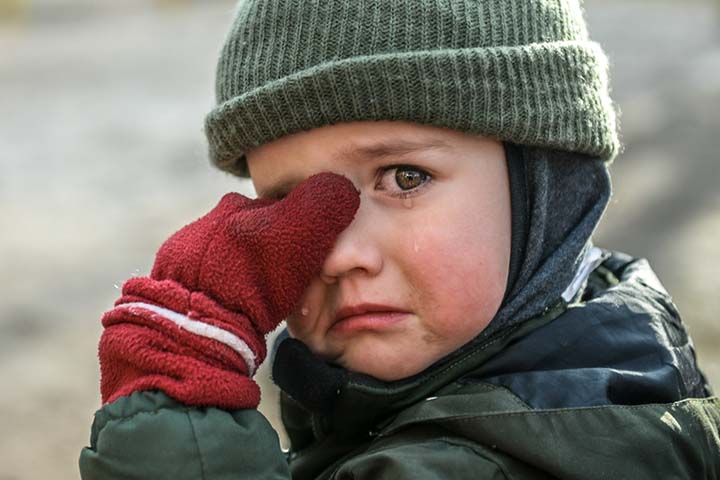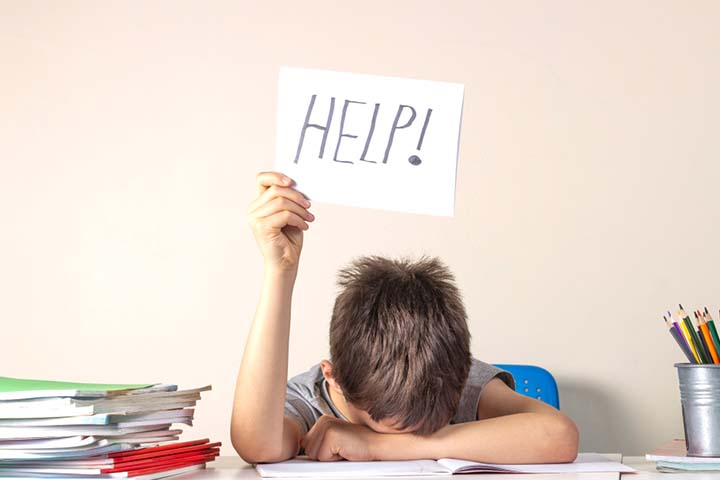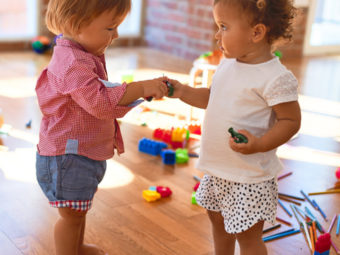
Image: Shutterstock
As parents, you want your child to be the best version of themselves. This can mean putting them in different extra curricular activities, making sure they can play instruments and a sport, keeping a tab on their grades and expecting them to be impeccably well mannered all the time. And although this sounds like a dream, it’s not exactly realistic. Sure, maybe your kid is polite most of the time and has varied interests but you cannot expect them to be perfect all the time. Kids who have parents who are overbearing in this manner often tend to rebel and act out anyway which can be frustrating for parents who have invested so much in them. But criticizing your children for not being able to perform the way you want them to is not the way to help them improve or encourage them to be consistent. So before you start grumbling about your kids without paying any mind to what they are doing right, here are a few things you should know about how criticism affects your child and their future. Read on to know more!
What Is Criticism?
Criticism is the expression of disapproval from someone or something based on perceived flaws or mistakes. The approach of criticizing your kids not only draws attention to a mistake they might have committed, but it also implies that the problem is not just the action itself but the person who has committed them. So you’re not just saying that what they have done is wrong but you are saying they are wrong, or that they are “being bad”.
What Is A Child’s Thought Process When You Criticize Them?
Image: Shutterstock
Even if your child has done something wrong, when you scold your child out of anger they immediately stop thinking about their mistakes and focus on your attitude toward them and on how unfair you are toward them. As a result, your child may develop a victim mentality instead of learning to take personal accountability for their actions. Does this mean that you never reprimand them? No, of course not. But you must do so in a way that is constructive to them. Because it is pointless to scold a child for being irresponsible if by doing this, you unintentionally reduce their ability to behave “like an adult” and take responsibility for their own actions. Some parents think that the entire purpose of criticizing their child is to make sure they behave well in order to avoid it. But this is rarely the case. Usually children just learn to hide and lie to their parents in order to avoid conflict and a scolding.
Can Criticism Help Your Child’s Upbringing?
Image: Shutterstock
Criticism definitely affects your child, but not in the way you’d hope. Children always take criticism to heart and those words will stay with them throughout their life. This is mostly because criticism often causes a feeling of shame. So, if your intention is to simply educate your child about what’s right and wrong but go about it harshly, it will not be effective. You must keep in mind that anything you are trying to impart to your child during these moments is overshadowed by the potent feeling of shame. Your child will end up feeling like they are flawed and that nothing can be changed.
How Can Criticism Affect Your Child’s Future?
Image: Shutterstock
Children who are criticized often are less able to recognize emotion on the faces of others. This is due to the fact that people tend to use the avoidance technique in order to exclude factors that cause discomfort and unpleasant feelings in their life. So children with parents who criticize them a lot subconsciously try not to read the facial expressions of other people as they are afraid to see the expression of a critical attitude. As a result of this behavior, they often don’t see positive emotions aimed at them either. This is why kids who have perfectionist parents or parents who are extremely critical of them usually can’t take compliments or are slow to recognise your appreciation of them.
持续的批评也可以沉重的再保险lationship with your child and eventually destroy any trust they had in you. In order to foster a good trusting relationship the child must know that they are loved unconditionally and that they can make mistakes and learn from them. Remember, your child’s inner monologue will echo what you, their parent, says about them. So if you are constantly criticizing them, they will end up doing the same to themselves.
Raising kids is no easy task but you should never be the reason why your child questions their self worth or if they are worthy of love or admiration. No one is perfect and it’s okay if your child makes mistakes, as long as they are willing to learn from them. So the next time you are about to have an outburst and criticize them, take a step back and consider the implications. Happy parenting!
















